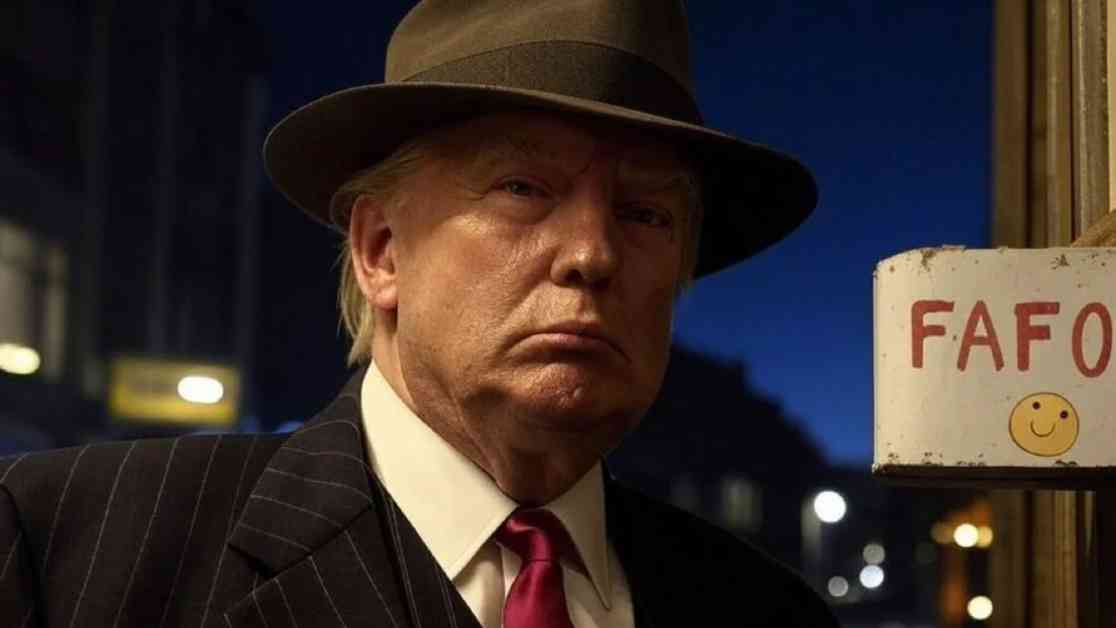Donald Trump’s recent migrant standoff with Colombia has sent shockwaves through the international community, signaling a clear message to world leaders that nothing is off the table in his America First agenda. The Colombian row, which culminated in Colombia accepting the return of its illegal immigrants after Trump threatened the nation with tariffs and sanctions, has caused ripples of concern and speculation among foreign policy analysts.
The expert insights provided by Michael O’Hanlon from the Brookings Institute shed light on the broader implications of Trump’s actions. According to O’Hanlon, the migrant standoff serves as a warning to other world leaders, indicating that Trump is willing to leverage economic power and tariffs as tools for negotiation. The sudden U-turn by Colombia in accepting migrants following Trump’s threat highlights the potential impact of his aggressive stance on allies and adversaries alike.
Implications for International Relations
O’Hanlon’s analysis suggests that Trump’s confrontational approach could influence the behavior of America’s allies, potentially forcing them to engage more directly with the United States to avoid conflict. The expert predicts that Trump’s second term will be characterized by a continued emphasis on leveraging economic strength and personal persuasion to achieve his objectives. However, O’Hanlon also cautions that this approach carries inherent risks, especially if perceived as a sign of weakness by rival nations.
Looking ahead, O’Hanlon warns of potential conflicts that could arise if Trump follows through on his threats to withdraw US troops from South Korea, revoke NATO’s Article Five protection, or refuse to support Taiwan in the event of a Chinese invasion. These decisions, according to O’Hanlon, could lead to heightened tensions and escalations that may have far-reaching consequences for global stability.
Challenges and Opportunities for Allies
The expert also highlights the need for America’s allies to navigate Trump’s unpredictable foreign policy with caution, emphasizing the importance of projecting confidence and directness in their interactions with the US. O’Hanlon suggests that leaders like Britain’s Keir Starmer must be prepared to roll with the punches and find common ground with Trump to secure favorable deals and maintain strong alliances.
In light of Trump’s recent actions, including his crackdown on illegal immigration and imposition of stringent border security measures, the Colombia standoff represents a significant victory for the administration. The White House’s statement asserting America’s restored respect on the global stage underscores Trump’s unyielding commitment to enforcing immigration policies and holding other nations accountable for accepting deportees.
The high-stakes drama between Trump and Colombia, marked by threats of tariffs, sanctions, and visa revocations, underscores the volatile nature of international relations in the current political climate. As tensions continue to simmer between the US and its allies, the world waits with bated breath to see how Trump’s bold and unapologetic approach will shape the future of global diplomacy.
In conclusion, Trump’s migrant standoff with Colombia serves as a stark reminder of the power dynamics at play in international relations, with implications that extend far beyond the borders of any single nation. As world leaders grapple with the fallout of Trump’s actions, the stage is set for a new era of diplomacy characterized by uncertainty, challenges, and opportunities for those willing to engage with the United States on its own terms.





















